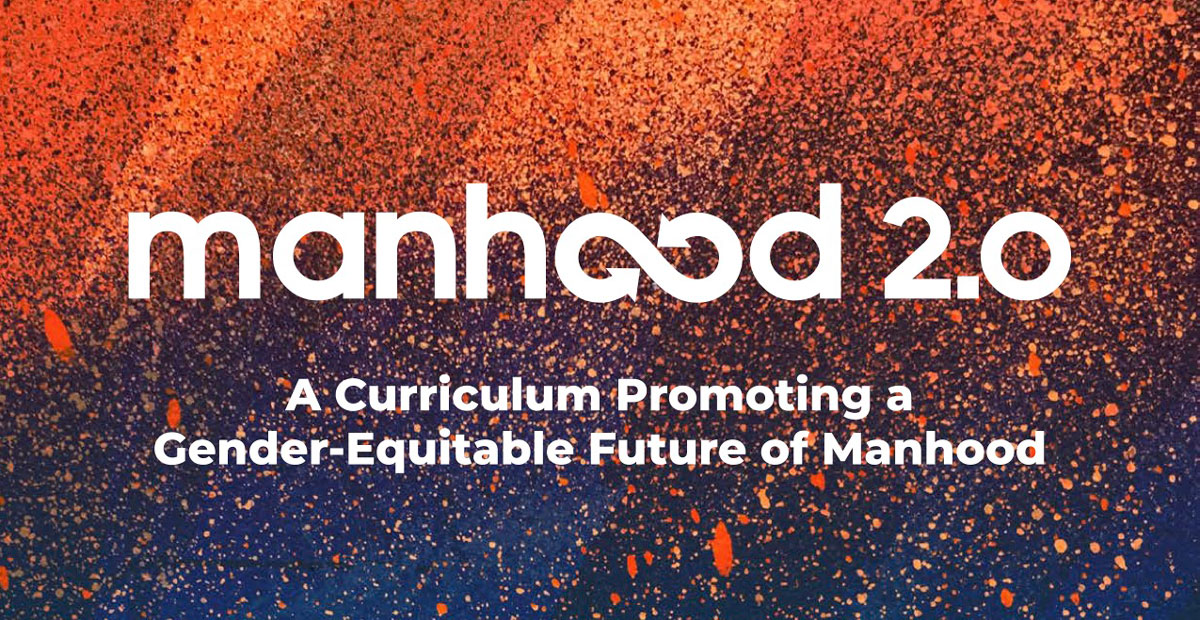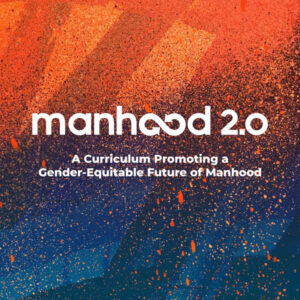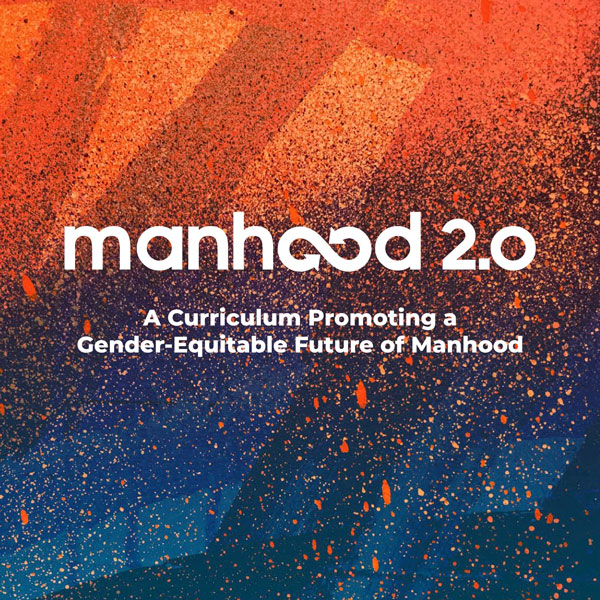
Equimundo, in partnership with the University of Pittsburgh School of Medicine, released Manhood 2.0: A Curriculum to Promote the Gender-Equitable Future of Manhood – a milestone in the history of gender programming for young men in the United States – on June 7 at the 2018 National Summit on Adolescent and Young Adult Male Health.
Manhood 2.0 is a gender-transformative program launched by Equimundo and the University of Pittsburgh in 2016 to work with young men in the United States – and their teachers, parents, coaches, and female peers – to promote positive ideas of manhood and build healthy relationships through communication and respect.
It engages young men aged 14 to 22 in reflecting on the impacts of harmful gender norms in their lives and in their relationships, with a specific focus on reducing rates of teen pregnancy, dating violence and sexual assault, and bullying of lesbian, gay, bisexual, transgender, and queer (LGBTQ) individuals.
The new Manhood 2.0 curriculum is a guide created for use by program managers, educators, and local facilitators who are engaging young men in gender equality and violence prevention.
Drawing from more than 15 years of programming with adolescent men around the world, the manual includes a series of group sessions to enable young men to engage in critical self-reflection, guidance for facilitators on building safe spaces for youth engagement, and guidelines on how to motivate youth as agents of change through community mobilization. Overall, the manual serves as a resource to build collective support for making positive, healthy changes in the lives of young men.
Manhood 2.0 is an adaptation of Program H, an evidence-based approach to working with youth for gender justice that Equimundo and partners first developed in Latin America more than 15 years ago. Program H has since been adapted for use in more than 35 countries and endorsed by government ministries, research agencies, the United Nations, diverse funders, and – most importantly – by youth themselves.
Manhood 2.0 emerges from years of research affirming that inequitable, harmful ideas about masculinity and stereotypes about gender roles are often the drivers of poor sexual health outcomes, dating and sexual violence, bullying, mental health concerns, substance abuse, and other negative health behaviors. The approach is rooted in social transformation, in intersectional feminist collective action, and in the work of Brazilian educator Paulo Freire, who espoused the idea of collective consciousness-raising. Manhood 2.0 supports young men to recognize ways in which power and oppression manifest, and it provides them with opportunities to practice skills to create healthier relationships, positive social networks, and nonviolent communities through conversation, role-play, and arts-based therapy.
Equimundo’s research and that of many others affirms how rigid norms about manhood – sometimes referred to as the “Man Box” – can trap young men into ways of thinking and being that can harm women and girls, their communities, and themselves. Working with young men in critical reflection and skill-building is one means of addressing gender justice, situated within broader efforts to engage youth of diverse genders and sexual orientations, parents and other caregivers, and adult allies, as well as within movements to continue progress towards economic, racial, and social justice.
View the full Manhood 2.0 manual for educators here, and learn more about Manhood 2.0 program here.

